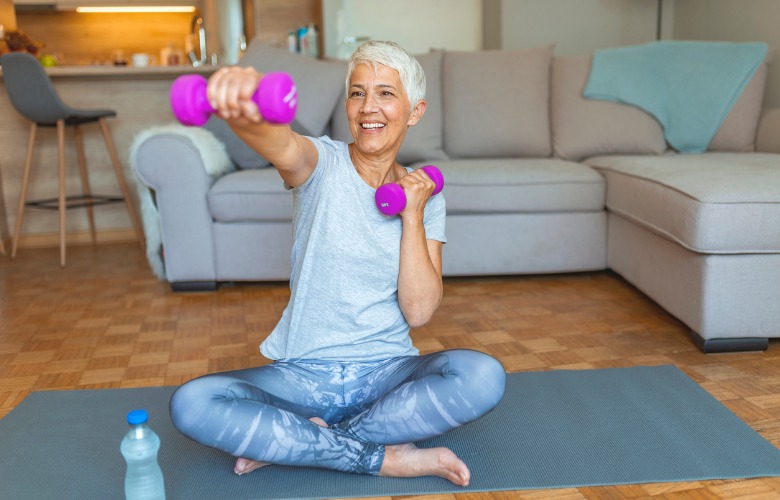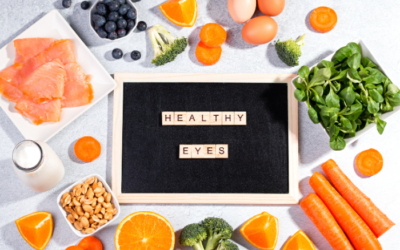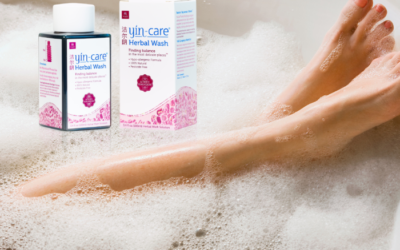Best Supplements for Women Over 50
Perimenopause and Menopause
Perimenopause can last for four to eight years before menopause which most women experience between the ages of 40 and 58 – the average age being 51. Menopause is defined as ceased menstruation for twelve consecutive months.
Symptoms of perimenopause/menopause include:
- Hot flashes
- Night sweats
- Vaginal dryness
- Chills
- Sleeping issues
- Insomnia
- Irregular periods
- Mood swings
- Weight gain
- Slower metabolism
- Thinning hair
- Dry skin
Due to the loss of reproductive hormones after menopause – women’s health risks rise including heart disease, osteoporosis, and urinary conditions.

Herbs for Perimenopause or Menopause
Holy Basil
Also known as Tulsi, holy basil has been traditionally used for thousands of years. Can help with anxiety, fatigue, thyroid conditions.
Rhodiola
Also known as Rhodiola Rosea, is an anti-aging adaptogen herb that helps with stress, memory, and mental fatigue.
Ashwagandha
Used for over 2500 years in Ayurveda medicine, ashwagandha can help support the immune and adrenal systems, combats stress, improves memory, and reduces anxiety and depression. It also can help with sexual drive, another symptom for women in menopause.
Maca
Another herb for thousands of years to increase energy, stamina, sexual drive, and strength. It can also help with menopause and perimenopause symptoms including hot flashes, anxiety, depression, and night sweats.
Astragalus Root
Used for thousands of years in traditional Chinese medicine astragalus is a strong adaptogen that supports immune function. Immune response and function can fluctuate during menopause and perimenopause because of hormone changes.
Licorice Root
Tired of hot flashes and night sweats? Licorice has been shown to decrease both by reducing the frequency and severity of hot flashes.
Black Cohosh
Often used for menopause because black cohosh can address many of the symptoms including hot flashes, night sweats, vaginal dryness, vertigo, sleep issues, and irritability.
There are also perimenopause and menopause formulas that include many of these herbs together for convenience.

Multivitamin
Starting with a general multivitamin can be a perfect way to fill nutritional gaps and ensure you are getting the daily recommended nutrients each day. However, there are many choices for multivitamins that are designed for women over the age of 50:
Vitamin D – our bodies don’t make it but come from exposure to sunshine. Older adults are often found deficient – taking a daily multivitamin with Vitamin D is important.
Vitamin C – You can get this from eating citrus fruits, green and red bell peppers, raspberries, and more. Vitamin C can help protect against cataracts and wound healing.
Vitamin B6 – As women age and especially during the menopausal years – they need more help with metabolism and the immune system as hormone swings can occur.
Vitamin B12 – Super important for supporting cell health – especially blood and nerve cells. Vitamin B12 also supports energy production, so important during perimenopause and menopause when energy levels fluctuate, and fatigue can happen suddenly. Aging affects the way your body absorbs vitamin B12, so it is best to take a supplement to ensure you are getting enough each day.
Folate – helps prevent anemia.
Often lutein and zeaxanthin are included as they support vision when aging.
Anti-aging antioxidants are also helpful as these combat oxidative stress in the body and remove toxins.
Staying Active
Bone health
As women age, their muscles and bones can become weak and brittle. Also, the bone disease, osteoporosis, can occur which creates porous bones or small spaces inside of healthy bones. The bone can lose strength and density when this happens. While this can occur to people of any age, women over the age of 50 are much more at risk. Menopause also creates more risk – the end of menstrual periods and the low levels of estrogen can cause osteoporosis.
Ways to help prevent osteoporosis
Exercise – Walking hiking, climbing stairs, lifting weights and dancing can all help to strengthen your bones.
Calcium – Your bones hold 99% of your calcium stores – which means the healthier your bones the better. Aging can limit our body’s ability to absorb calcium and it is needed in higher amounts as we age. The official recommended calcium intake for women is 1200 mg per day.
Magnesium – since magnesium works closely with each other to support bone health. This important mineral also supports normal blood pressure and blood sugar levels. Magnesium is needed for calcium absorption. You may notice your multivitamin contains magnesium and your diet may as well, however as we age we need more as we do with calcium. It is best to take calcium and magnesium two hours apart to maximize absorption.
Heart health
Not only is heart disease the leading cause of death for women in America, but the risks increase as we age. Taking care of your heart health is crucial to a healthier and longer life. Staying active, quitting smoking, and limiting the use of alcohol all help to decrease risk.
Supplements that support heart health
Fiber – Shoot for 25 to 30 grams per day. While you can get enough from the diet by eating fruits, vegetables, whole grains, and legumes – you can also opt to take a fiber supplement.
Coenzyme Q10 – also known as CoQ10, is made naturally in the body as ubiquinone and ubiquinol. CoQ10 can help lower blood pressure.
Omega-3 fatty acids – These essential fatty acids can significantly lower triglyceride levels.
Green tea – A cup a day can help lower LDL cholesterol and triglyceride levels while raising HDL levels.
Garlic – Adding garlic to your meals can help to lower blood pressure, slow the build-up of plaque in arteries, and lower the risk of blood clots. Not into having garlic breath? Try a supplement instead.

Beauty after 50
Skin health
The positive part of aging? The acne breakout your menstrual cycle caused just before your period will be no more when you enter menopause. Oily skin, smaller pores, rosacea, and other hormonal issues will be a thing of the past. Although, during the perimenopause years you may see an uptick in these skin conditions before you welcome clearer skin.
Some of the ways you can have healthier skin after 50
- Wash your face – use a moisturizing cleanser twice a day.
- Sunscreen for your face with SPF 30 and both UVB and UVA protection.
- Stay hydrated – drink lots of water.
- Address dry skin – sleep with a humidifier and use a moisturizer every day.
- Try anti-aging supplements including collagen and rejuvenating cream.
- Use a serum for wrinkles and aging around your eyes.
- Treat yourself to a facial.
Beauty Sleep
Because menopause and perimenopause are a time of great change to your hormonal, mental, and physical wellness – sleep also can be affected. We all know sleep issues can be awful, making it difficult to process all the other symptoms that these changes bring. Sleep is important for your brain, your body, your longevity, and your mood. As many as 61% of women entering menopause report insomnia symptoms.
Sleep issues include:
- Insomnia
- Snoring
- Sleep apnea
- Night sweats
- Sleeplessness
- Interrupted sleep
- Difficulty falling asleep
- Waking too early
- Sleep-Wake cycle disturbances
- Feeling fatigued and sleepy throughout the day.
Supplements for improving sleep during menopause
Melatonin – is a hormone produced in the body and its release into the body is dictated by the circadian rhythm, which is dictated in turn by dark. Your body produces less melatonin as you age.
Valerian root – traditionally used for centuries to support sleep.
Lemon balm – used for sleep since the Middle Ages.
Passionflower – traditionally used for insomnia, to alleviate anxiety and improve sleep.
Magnolia bark – used in traditional Chinese medicine traditionally for stress relieve and contains sedative properties.
Other ways include:
- Wear lightweight and loose-fitting clothing to bed – which will help when night sweats start.
- Turn off all electronics at least an hour before bed.
- Curl up with a good book, reading can make the mind wander and tire your eyes – both make you sleepy.
- Fill the room with relaxing scents through aromatherapy or directly on your skin – lavender, ylang-ylang, bergamot orange, sandalwood, and cedarwood essential oils.
- Enjoy a cup of chamomile tea – can help with insomnia, relax the mind, and decrease anxiety.
- Take a long bath to unwind.
Gut health
Menopause can cause weight gain and hormonal changes can increase or decrease appetite. Your gastrointestinal system can also suffer – menopause can cause bloating, constipation, and acid reflux. Your gut and vaginal microbiota are regulated by estrogen levels and as they fluctuate your immune system and digestive system can be affected. Also, the occurrence of autoimmune disease can increase as you age, and your microbiota changes. If that isn’t bad enough your mood, stress levels, and energy levels that are affected by the menopausal years can also affect your gut health.
Ways to support gut health
- Eat prebiotic foods such as garlic, artichokes, blueberries, apples, beets, fennel, cabbage, ginger, and cocoa.
- Eat probiotic foods such as kefir, kombucha, yogurt, kimchi, sauerkraut, natto, and apple cider vinegar (from The Mother).
- Take probiotics and prebiotic supplements.
- Take collagen protein or drink bone broth.
- L-glutamine – an amino acid that repairs intestinal wall.
- Zinc – supports gut health.
- Try intermittent fasting.
- Lower stress levels.
- Exercise at least 30 minutes each day.
- Drink lots of water to flush out toxins in your body.

Jemile earned a degree in Food Studies and Writing and has worked for almost 23 years in the medical and health industries. She has been a digital marketing consultant for Acupuncture Atlanta since 2011 as the social media manager and content manager. Writing has been a childhood dream for Jemile and writing daily for clients in the health, wellness, food, and art industries have been phenomenal. Jemile is originally from Brooklyn, NY, and lives in the Hudson Valley, NY. She lives with her husband, two daughters, her dog, and two fish. You can contact Jemile via Linkedin, her mom blog, or her website, lunaroseconsulting.com





